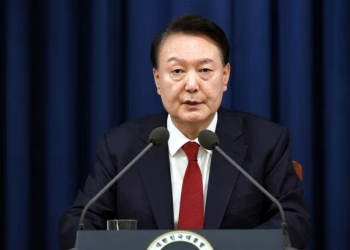President William Ruto will join global leaders in advocating for a legally binding international treaty on plastic pollution during the 79th session of the UN General Assembly in New York.
Ruto is participating in the assembly from September 23 to 27, focusing on efforts to advance the 17 Sustainable Development Goals. He will deliver the keynote address at a high-level side event organized by the Kenyan government and the United Nations Environment Programme (UNEP) on Wednesday.
The event aims to build political momentum and foster global partnerships to combat plastic pollution, with a goal of establishing a binding international agreement by the end of 2024. A source noted that the event will discuss challenges, best practices, and opportunities for addressing plastic pollution through enhanced global environmental governance.
The high-level gathering, titled “Galvanising Momentum for the Global Plastic Pollution Instrument,” will feature notable speakers, including Rwandan President Paul Kagame and Norwegian Prime Minister Jonas Gahr Støre.
In a significant development at UNEA-5 in 2022, UN member states approved a resolution to tackle plastic pollution through a legally binding agreement by 2024, which will cover the entire lifecycle of plastic, from production to disposal.
Kenya is advocating to host the secretariat for this agreement, a position Ruto emphasized in February during the United Nations Environment Assembly in Gigiri.
Since 2017, Kenya has implemented strict regulations against plastic use, including a ban on plastic carrier bags that carries hefty fines or imprisonment for violations. Despite these efforts, illegal plastics continue to enter the market from neighboring countries, highlighting ongoing enforcement challenges.
Additionally, Kenya has prohibited single-use plastics in national parks, beaches, and conservation areas to further protect the environment.
Other initiatives at the assembly will include the launch of various reports and partnerships, including a project aimed at addressing lead poisoning in children, particularly in low- and middle-income countries, where most global cases occur.















